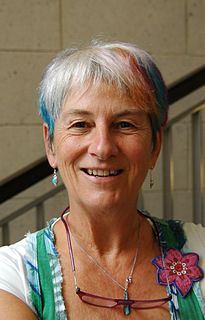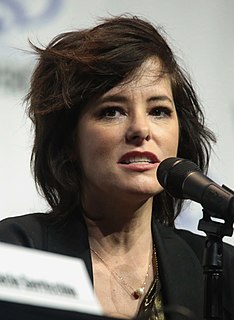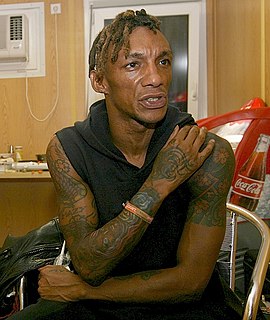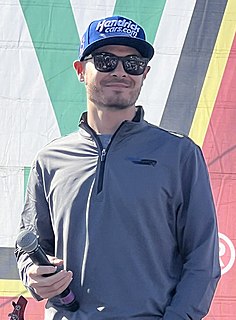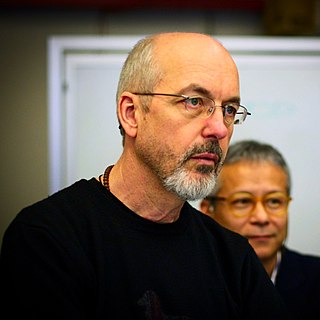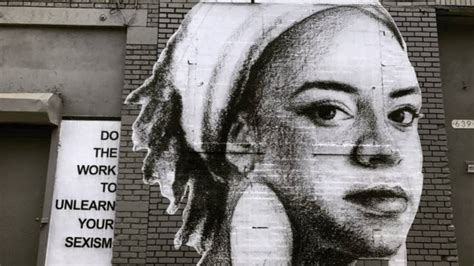A Quote by Susan Blackmore
Certainly almost everything we do and think is colored in some way by memes, but it is important to realize that not everything we experience is a meme. If I walk down the street and see a tree, the basic perception that's going on is not memetic.
Related Quotes
A meme (rhymes with dream) is a unit of information (a catchphrase, a concept, a tune, a notion of fashion, philosophy or politics) that leaps from brain to brain. Memes compete with one another for replication, and are passed down through a population much the same way genes pass through a species. Potent memes can change minds, alter behavior, catalyze collective mindshifts and transform cultures. Which is why meme warfare has become the geopolitical battle of our information age. Whoever has the memes has the power.
I ran to Rachel [Comey]'s show and on the way I found a potted tree - an umbrella tree - on the street. I always think things are going to be way more intimate than they are and there aren't going to be a lot of people around. I don't know why I think this. I'm always shocked at what a hoopla things are. They were like, 'Hurry up.' So I put the tree down and I see Rachel and she's like, 'Hurry up, sit down.'
We cannot master everything, taste everything, understand everything, drain every experience to its last dregs. But if we have the courage to let almost everything else go, we will probably be able to retain the thing necessary for us-whatever it may be. If we are too eager to have everything, we will almost certainly miss even the one thing we need
Everything - a bird, a tree, even a simple stone, and certainly a human being - is ultimately unknowable. This is because it has unfathomable depth. All we can perceive, experience, think about, is the surface layer of reality, less than the tip of an iceberg. Underneath the surface appearance, everything is not only connected with everything else, but also with the Source of all life out of which it came. Even a stone, and more easily a flower or a bird, could show you the way back to God, to the Source, to yourself.
Fifty years from now I don't think optical realism is going to be an issue in visual communication any more. Experience is so much richer than light falling on your retina. You embody a microcosm of reality when you walk down the street - your memories, your varying degrees of awareness of what's going on around you, everything we could call the contextualizing information. Representing that information is going to be the main issue in the years ahead - how the world meets the mind, not the eye.
I certainly don't sit down and plan a book out before I write it. There's a phrase I use called "The Valley Full of Clouds." Writing a novel is as if you are going off on a journey across a valley. The valley is full of mist, but you can see the top of a tree here and the top of another tree over there. And with any luck you can see the other side of the valley. But you cannot see down into the mist. Nevertheless, you head for the first tree.
I suppose for me, with 'Djesse,' I realized fairly early in the process that I also needed a character to walk this path, which in some ways is me, and in some ways is not me. I think of Djesse a bit like the infinite child who can see everything and walk into everything as light as a feather and just alchemize.
I think it's very important to get this stuff on film, not just the behind-the-scenes of the process, but also the interviews with the women. We're going to try to do some on-the-street filming, getting people's reactions to the work, and seeing if we can get some street harassment happening on film so people can see what we're talking about. It's important to have some type of documentation so people can see what happens when we create this artwork and why I'm creating it.
I was on some bad teams, and I played bad as a young player, certainly, at times. And that all mounts. Yeah, that all mounts. The perception. Everything that goes into that. And so, yeah, I think to kind of get over the hump of that, to change perception, it can be difficult. It's a tall task. And it takes a long time.
As for memes, the word 'meme' is a cliche, which is to say it's already a meme. We all hear it all the time, and maybe we even have started to use it in ordinary speech. The man who invented it was Richard Dawkins, who was, not coincidentally, an evolutionary biologist. And he invented it as an analog for the gene.
